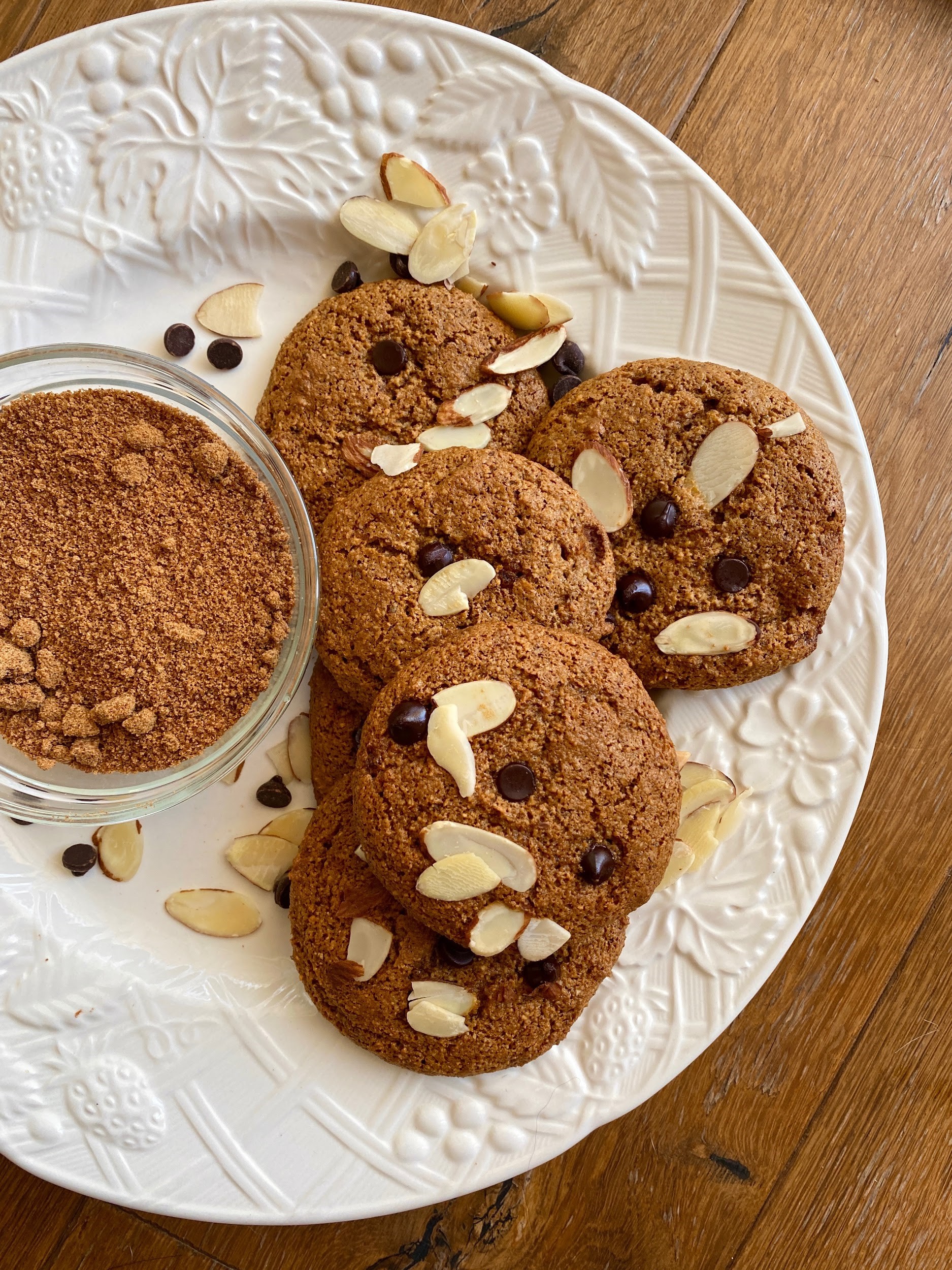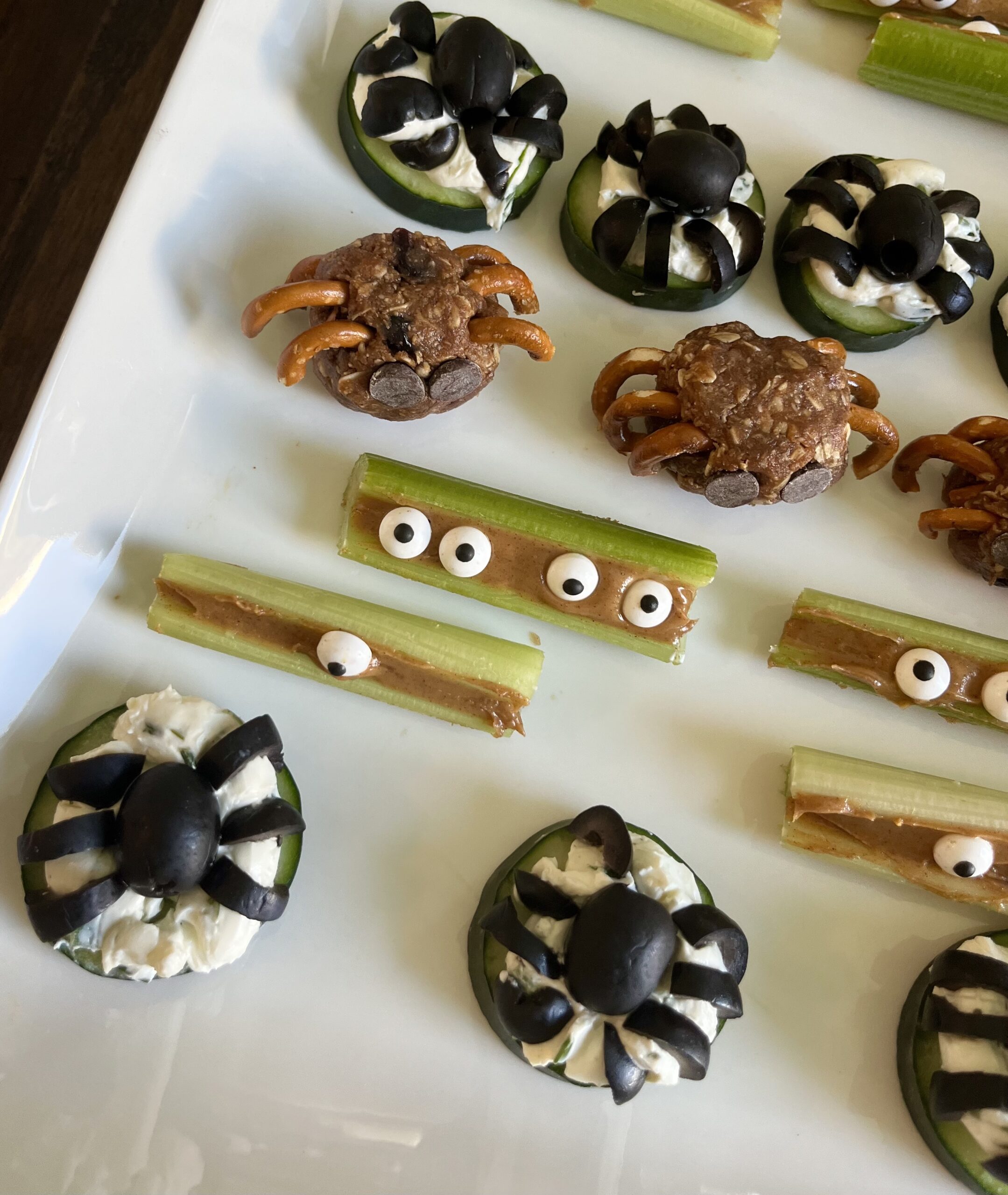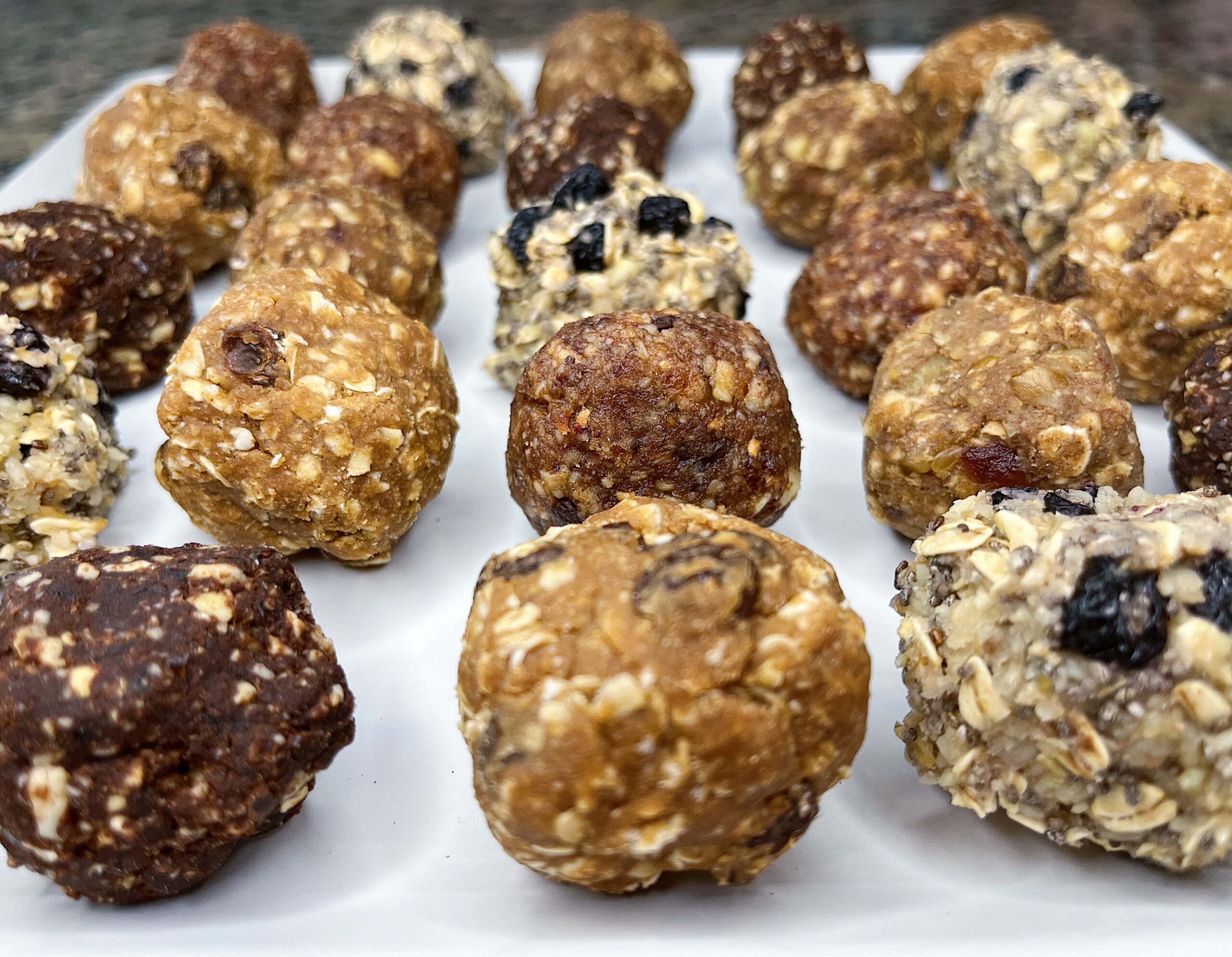How to Kick Sugar Cravings

How to Kick Sugar Cravings
Thousands of clients have come to me over the past 15 years with self-proclaimed titles of being a “sugar addict.” I understand their feelings of needing sugar. Craving sweets. Feeling the compelling desire to pop a piece of chocolate into their mouths to satisfy a sweet tooth. The yearning for sweets frustrates my clients because they will overeat the sweets or eat them too frequently which can inhibit them from reaching their health goals. Or they will use sweets to satisfy emotional needs that also isn’t helpful in the long run because the sugar doesn’t make them feel better over time. Just worse. Let’s discuss sweets and talk about how to kick sugar cravings, get rid of that title of being a “sugar addict,” and find empowerment to be able to eat a sweet without falling down the rabbit hole or feeling out of control.
Low Blood Sugars. When we are physically hungry, our blood sugars are also out of whack. Our bodies need the energy, which mainly comes from carbohydrates, in order to better regulate our blood sugars.1,2 Since sweets are comprised of simple sugars that are easily digested, the body will crave these foods to quickly get that instant energy. Therefore, sugar becomes a legitimate craving for regulating blood sugars and increasing energy. It’s what the body physically needs.
Physical Hunger. Ghrelin is the hunger hormone and when we are hungry, our body produces ghrelin. Studies have found that high levels of stress also increase ghrelin production which enhances more sweet cravings.1 Because our bodies associate physical hunger with the need for food that will provide instant energy, sugary foods are a perceived easy go-to for the body to control and reduce ghrelin levels.
Stress. Stress also affects sugar cravings. The more stress we have, the greater our sugar cravings can be. Stress increases cortisol levels and decreases dopamine and serotonin, our happy hormones. Sugar positively affects our happy hormones and elevates them. People can crave sugar when they are stressed because of this physical affect stress has on our bodies. Eat the sugar, feel more happy (momentarily).
Dehydration. Dehydration can also affect our sugar cravings. The liver releases glycogen, which is our primary energy source, into the body. When we’re dehydrated, the liver can’t do this, so our bodies will crave sugar to get the energy it needs. Dehydration also negatively affects our happy hormones by reducing them which can cause an increase in sugar cravings, too.
Emotional Hunger Versus Physical Hunger
There are 2 types of hunger: Emotional and Physical.
Emotional Hunger is when you eat for emotional reasons whether it is boredom, sadness, anxiety, stress, or happiness. There usually are specific cravings and only certain foods will seem to be able to satisfy this need and urgency to eat.
Physical Hunger is when people have lower energy with physical body signs such as a growling stomach. Usually, with physical hunger, people will eat anything just to get some food in them.
Understanding one’s emotional hunger versus physical hunger is the first start to understanding one’s cravings. If people are physically hunger and emotionally hungry, resolving and getting rid of those cravings is extra challenging. When people are physically nourished with delicious food, coping with the emotional aspect of eating is slightly easier and can be the primary focus. So the goal is to work on staying physically nourished by eating frequently and controlling our ghrelin levels.
Rewarding Our Brains with Sugar
Food can act as a reward for our brain. When we are having negative emotions, such as feeling sad, overwhelmed, or stressed, our dopamine and serotonin levels are decreased and our brains want to feel good again and boost those happy hormones. Food physically increases serotonin and dopamine levels. Sugar, in particular, highly increases dopamine production and is a very desirable craving for the brain to have when feeling down and out.2 Therefore, the thought of craving sugar makes complete sense when we’re feeling the moody blues.
The challenge is that once our brain has a reward system set up, whenever we feel those negative emotions, our brain instantly calls out for those specific rewards. Our brain will literally request for sugary foods to make us feel better. The faster we feed into that calling, that sugar craving, the more the brain associates sugar and sweets as a reward, and the vicious cycle continues.3 Therefore, you feel down, you eat sugar, the brain feels rewarded (momentarily). Now, you have legitimately become that “sugar addict” and you feel as though you really need it every time there is a negative emotion.
How to Kick Sugar Cravings
Control Your Hunger. Contrary to starving yourself, nourish and feed your body so you are physically full in order to have more bandwidth to work on the emotional side of cravings. Controlling ghrelin levels versus ignoring them can be very powerful. Many people need a snack between 3:00 pm and 5:00 pm when their energy levels start to dip from hunger and their stress levels have peaked from a long day at work. Have a snack or eat a meal, as needed, filling up with protein-packed, fiber-rich foods and you’ll note how that afternoon sugar craving does go down.
Eat High Fiber Carbs. Ghrelin is best suppressed when we eat some carbohydrates, particularly high fiber carbs, which fill us up, provide our bodies with energy, and satisfy us. I’ve had clients who will eat a salad for lunch with just chicken or salmon, lettuce, and a light dressing. By the time 3:00 pm rolls around, they are craving that sugar. However, add some garbanzo beans to the salad, which are packed with high-fiber carbohydrates and plant-based protein, and they feel more satisfied after eating the salad and it keeps them full longer. High fiber carbs include legumes/beans (black beans, pinto beans, kidney beans, mung beans, lentils, garbanzo beans/chickpeas, butter beans), whole grains (quinoa, brown rice, bulgar, amaranth), and starchy vegetables (sweet potatoes, butternut squash, pumpkin).
Change the Reward System. We need an alternative option to boost those happy hormones. When we’re feeling down, we still need to improve our moods. Think about non-food-related rewards that you can do in the moment to manage stress levels. Some options are meditating, listening to music, going for a walk, getting outside, practicing deep breathing, calling a friend, or stretching. When we have more time, we can also focus on other types of self-care or activities that make us feel good like getting a massage, facial, or mani/pedi. The more often we practice this new type of non-food-related reward system, the more the brain will start to crave this new option to feel better again.
Stay Hydrated. When we are hydrated, our bodies have what it needs for the liver to produce adequate amounts of glycogen and serotonin and keep our blood sugars regulated. Taking your daily dose of Superstar added to 16 ounces of water can contribute to your daily needs of 3.7 Liters of fluids per day for men and 2.7 Liters of fluids per day for women according to the US National Academies of Sciences, Engineering, and Medicine. This includes all fluids, so you can also add in your serving of Galaxy Cloud Creamer to your daily cup of coffee to optimize your nutrient intake and provide you with clear, calm focus.
Remember: The more we practice a habit, the easier it becomes. Kick the sugar cravings by staying fueled, hydrated, and nourished and having a healthy reward system set in place. We all need daily self-care and self-love.
Written by: Sarah Koszyk, MA, RDN.
For More Tips on How to Kick Sugar Cravings, check out:
References
- Macedo DM, Diez-Garcia RW. Sweet craving and ghrelin and leptin levels in women during stress. Appetite. 2014 Sep;80:264-70. doi: 10.1016/j.appet.2014.05.031. Epub 2014 May 28. PMID: 24879886.
- Avena NM, Rada P, Hoebel BG. Evidence for sugar addiction: behavioral and neurochemical effects of intermittent, excessive sugar intake. Neurosci Biobehav Rev. 2008;32(1):20-39. doi: 10.1016/j.neubiorev.2007.04.019. Epub 2007 May 18. PMID: 17617461; PMCID: PMC2235907.
- Olszewski, P.K., Wood, E.L., Klockars, A. et al. Excessive Consumption of Sugar: an Insatiable Drive for Reward. Curr Nutr Rep 8, 120–128 (2019). https://doi.org/10.1007/s13668-019-0270-5
Recent Posts
Get 10 Must-Have Protein-Rich Powerhouse Snacks
These will fuel and satiate you.
You’ll also get access to my newsletter for the latest recipes, health tips, and exclusive offerings.



